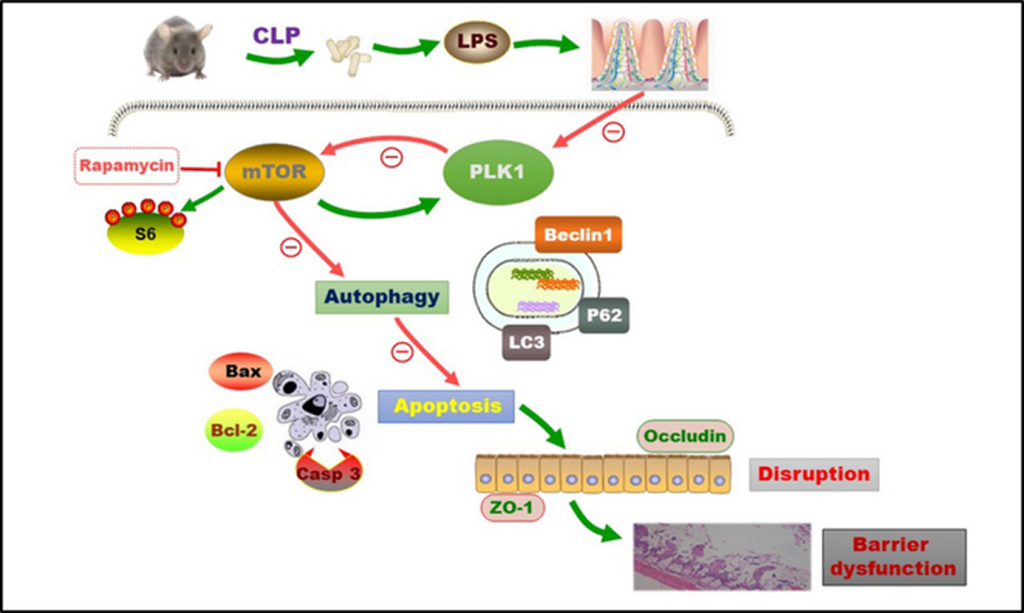HAUPTMENÜ
AWARDS
Forschergeist gefragt: 14. Novartis Oppenheim-Förderpreis für MS-Forschung ausgelobt
FernstudiumCheck Award: Deutschlands beliebteste Fernhochschule bleibt die SRH Fernhochschule
Vergabe der Wissenschaftspreise der Deutschen Hochdruckliga und der Deutschen Hypertoniestiftung
Den Patientenwillen auf der Intensivstation im Blick: Dr. Anna-Henrikje Seidlein…
Wissenschaft mit Auszeichnung: Herausragende Nachwuchsforscher auf der Jahrestagung der Deutschen…
VERANSTALTUNGEN
Wichtigster Kongress für Lungen- und Beatmungsmedizin ist erfolgreich gestartet
Virtuelle DGHO-Frühjahrstagungsreihe am 22.03. / 29.03. / 26.04.2023: Herausforderungen in…
Pneumologie-Kongress vom 29. März bis 1. April im Congress Center…
Die Hot Topics der Hirnforschung auf dem DGKN-Kongress für Klinische…
Deutscher Schmerz- und Palliativtag 2023 startet am 14.3.
DOC-CHECK LOGIN
New study suggests a promising therapeutic target for sepsis
Promoting autophagy restores intestinal barrier function in sepsis, investigators report in The American Journal of Pathology
Elsevier
Philadelphia (January 26, 2023) – Sepsis, one of the most acute and serious disease complications in the intensive care unit, is caused by various infections and results in life-threatening organ dysfunction. The intestinal barrier plays a vital role in the process of sepsis, and its disruption exacerbates sepsis. A new study in The American Journal of Pathology, published by Elsevier, has found that promoting autophagy, the process by which cells break down and destroy damaged or abnormal proteins, with rapamycin, an immunosuppressant, reduced intestinal epithelial cell death and restored intestinal barrier function during sepsis. The study also suggests that the interplay of mammalian target of rapamycin (mTOR), a negative regulator of autophagy, and polo-like kinase 1 (PLK1) is crucial in sepsis-induced barrier dysfunction and may provide novel insights for treatment of sepsis.
“Despite the increased understanding of sepsis pathophysiology and the application of advanced clinical treatments, sepsis remains a major cause of health loss worldwide with a high health-related burden,” said lead investigator Wei-Hua Lu, MD, Department of Critical Care Medicine, The First Affiliated Hospital of Wannan Medical College (Yijishan Hospital of Wannan Medical College), and Anhui Province Clinical Research Center for Critical Care Medicine (Respiratory Disease), Anhui, China. “Because the function of mTOR and PLK1 in sepsis remains unclear, further investigation is warranted.”
In the study, mice were subjected to cecal ligation and puncture (CLP), a perforation of the cecum allowing the release of fecal material into the peritoneal cavity, which established a sepsis model in vivo. Compared to mice in sham group, the CLP mice had severe intestinal mucosal injury and increased intestinal mucosal permeability. Under rapamycin treatment, activation of autophagy inhibited enterocyte apoptosis and restored the disrupted intestinal barrier, suggesting that autophagy plays a protective role in sepsis-induced intestinal barrier dysfunction.
To determine whether the protective role of PLK relies on autophagy, mice modified with the PLK1 gene (CAG-PLK1 mice) underwent CLP. Activation of autophagy was observed, and apoptosis was alleviated. However, these ameliorative phenomena deteriorated in mice treated with chloroquine, an inhibitor of autophagy, compared with mice treated with rapamycin. These results indicate that PLK1 protects against sepsis-induced barrier dysfunction by promoting intestinal autophagy.
To further explore whether PLK1 promotes autophagy via the mTOR pathway in intestinal epithelial cells, the investigators observed the physical interaction between PLK1 and mTOR in an in vitro model of human colonic epithelial cells. They found that PLK1 also promotes cell autophagy and improves autophagy and high permeability. Moreover, PLK1 physically interacted with mTOR and participated in reciprocal regulatory crosstalk in intestinal cells during sepsis.
„The reciprocal regulation of the PLK1-mTOR axis is crucial in sepsis-induced intestinal barrier dysfunction,” Dr. Lu observed. “These findings indicate that the PLK1-mTOR axis may be a promising therapeutic target for treatment of sepsis.”

Image: Overexpression of PLK1 enhances intestinal epithelial autophagy during sepsis, thus reducing intestinal epithelial apoptosis and ameliorating intestinal barrier dysfunction. However, the protective effects of PLK1 are impaired by treatment with chloroquine, an inhibitor of autophagy. PLK1 negatively regulates the activity of the mTOR pathway, and the inhibition of mTOR recovers the expression of PLK1, thus generating regulatory crosstalk during sepsis, which may be another mechanism of sepsis-induced intestinal barrier dysfunction. CLP, cecal ligation and puncture; LPS, lipopolysaccharide. Credit: The American Journal of Pathology
—
Journal: American Journal Of Pathology
DOI: 10.1016/j.ajpath.2022.11.008
Method of Research: Experimental study
Subject of Research: Animals
Article Title: The PLK1-mTOR Axis Regulates Autophagy to Prevent Intestinal Barrier Dysfunction During Sepsis
Elsevier, 26.01.2023 (tB).
Schlagwörter: Intensivmedizin, Sepsis


